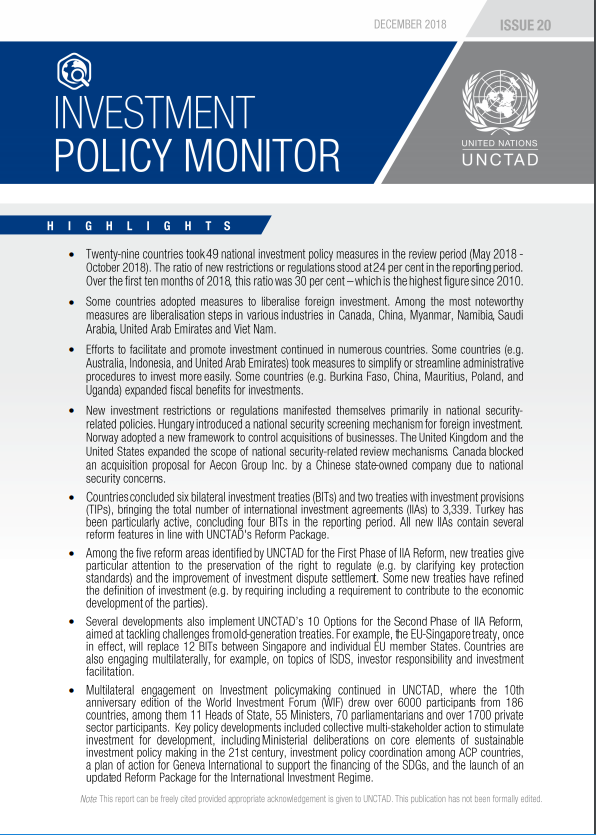Investment Policy Monitor No. 20
Newly adopted restrictions or regulations are primarily related with national security concerns including measures to reinforce or expand the national security review procedure, and the disapproval of an acquisition proposal by foreign investors.
At the same time, numerous countries improved business conditions for foreign investment with developing and transition economies taking the lead.
Among the most noteworthy measures are liberalization steps in some industries, the simplification of administrative procedures and expansion of fiscal incentives for investments.
Regarding international investment treaties, the Monitor finds that six bilateral investment treaties (BITs) and two treaties with investment provisions (TIPs) were concluded, bringing the total number of international investment agreements (IIAs) to 3,339.
Among the five reform areas identified by UNCTAD for the First Phase of IIA Reform, new treaties give particular attention to the preservation of the right to regulate and the improvement of investment dispute settlement. Several developments, such as the consolidation of treaties, also implement UNCTAD’s 10 Options for the Second Phase of IIA Reform, aimed at tackling challenges from old-generation treaties.
Multilateral engagement on Investment policymaking continued in UNCTAD, where the 10th anniversary edition of the World Investment Forum (WIF) drew over 6000 participants from 186 countries, among them 11 Heads of State, 55 Ministers, 70 parliamentarians and over 1700 private sector participants.
Key policy developments included collective multi-stakeholder action to stimulate investment for development, including Ministerial deliberations on core elements of sustainable investment policy making in the 21st century, investment policy coordination among ACP countries, a plan of action for Geneva International to support the financing of the SDGs, and the launch of an updated Reform Package for the International Investment Regime.
















